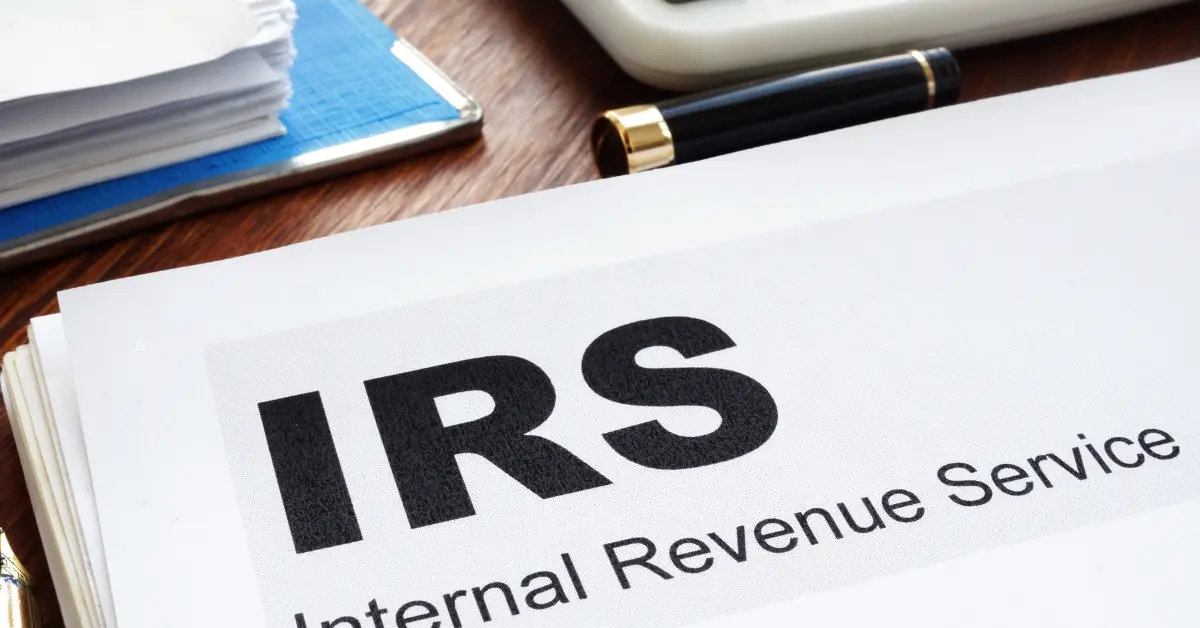If you have foreign financial assets, you might be wondering about Form 8938 filing requirements. The IRS uses Form 8938, Statement of Specified Foreign Financial Assets, to collect information about these assets.
Let’s dive into Form 8938 filing requirements, who needs to file Form 8938, and what to expect during the process.
Key Takeaways:
- Who Needs to File: U.S. citizens, resident aliens, and certain non-resident aliens with foreign financial assets exceeding specified thresholds must file Form 8938.
- Reporting Thresholds: Thresholds vary based on filing status and residency. For example, single filers in the U.S. must file if assets exceed $50,000 at year-end or $75,000 during the year.
- Included Assets: Reportable assets include foreign bank accounts, stocks, securities, and interests in foreign entities. Personal-use foreign real estate usually does not need to be reported.
- Penalties for Non-Compliance: Failure to file or inaccuracies can result in severe penalties. Timely and accurate filing is crucial to avoid legal issues.
- Form 8938 vs. FBAR: Form 8938 and FBAR have different purposes and thresholds. Both might be required, but they serve distinct reporting needs for foreign assets.
Form 8938 Filing Requirements: Who Needs To File?
You only need to file Form 8938 if you are a “specified person,” such as a U.S. citizen, a resident alien of the US, or certain non-resident aliens. If you are a non-resident alien, review the Form 8938 instructions or speak with a qualified tax professional for advice.
Even if you are a specified person, you may not have to file Form 8938. Often, the determining factor for filing depends on the total value of your foreign assets and where you reside.
For instance, if you meet the definition of a specified person but the total value of your assets is less than the IRS reporting threshold for your filing status, you may not need to file Form 8938. Understanding the specifics of Form 8938 filing requirements can help you determine if you need to file.
Exceptions and Exemptions
You might not need to file Form 8938 even if you have a lot of foreign assets. Some common exceptions exist. For example, if your only foreign assets are held in retirement accounts, like IRAs, you probably don’t need to report them on Form 8938.
But this doesn’t mean you can forget about these assets completely. You still need to consider them when looking at your overall tax situation.
Certain tax treaties between the U.S. and other countries might also mean you don’t have to file. These treaties can get pretty complicated, though. This is one of those times when talking to an international tax professional at Dimov Tax is a good idea.
Understanding Form 8938 Reporting Thresholds
The IRS sets different reporting thresholds based on several factors like your filing status, whether you are married filing jointly or separately, and your residency status. If your foreign assets exceed the reporting threshold, you will generally need to file Form 8938.
Here is a table summarizing the different reporting thresholds:
| Filing Status | Living in the U.S. | Living Outside the U.S. |
|---|---|---|
| Single (or Married Filing Separately) | $50,000 on the last day of the yearOR$75,000 at any point during the year | $200,000 on the last day of the yearOR$300,000 at any point during the year |
| Married Filing Jointly | $100,000 on the last day of the yearOR$150,000 at any point during the year | $400,000 on the last day of the yearOR$600,000 at any point during the year |
| Specified Domestic Entity* | $50,000 on the last day of the yearOR$75,000 at any point during the year | |
*More info on “Specified Domestic Entities” can be found on the IRS website.
What Assets Do I Include When Determining Aggregate Value?
When determining if your total asset value meets the reporting threshold, you must include all your specified foreign financial assets as outlined in the Form 8938 filing requirements.
It’s not just foreign bank accounts that count. Some common examples of assets you may be required to include when determining your aggregate value are:
- Foreign stocks and securities.
- Interests in foreign financial accounts.
- Interests in foreign entities, like partnerships or corporations.
Common Questions About What to Report on Form 8938
Many people often have questions about which specific assets should be included when filing Form 8938. Here are some assets that often confuse:
Do I Have to Report Foreign Real Estate?
In most cases, you won’t need to report direct ownership of foreign real estate that is for your personal use. However, if your foreign real estate is considered part of a foreign entity, like a corporation in which you have an ownership interest, reporting on Form 8938 might be necessary.
If you are unsure if your foreign real estate needs to be reported, you should seek advice from a tax professional.
Do I Report U.S. Mutual Funds With Foreign Investments?
Generally, you will not be required to include U.S. mutual funds with foreign investments on your Form 8938. These funds should already be reported on your other tax forms.
Form 8938 vs. FBAR: Are These Different?
Yes, Form 8938 and the FBAR are two separate forms. While both relate to reporting foreign accounts and assets, they have different purposes and filing requirements.
- Form 8938: This form is filed along with your annual tax return. Its purpose is to give the IRS detailed information about the value and composition of your foreign financial assets. You will also need to report your gross proceeds from the sale or disposition of these foreign assets to the IRS.
- FBAR (FinCEN Form 114): You must submit the FBAR to the Financial Crimes Enforcement Network (FinCEN) if the aggregate value of your foreign bank accounts meets or exceeds the reporting threshold. You must file by April 15th for the prior calendar year. This form declares the existence of specific foreign bank accounts and certain financial accounts that exceed a specific threshold.
The IRS website has a helpful chart comparing Form 8938 and the FBAR. If you need to file an FBAR, you might also need to file Form 8938. Because of the intricacies surrounding Form 8938 filing requirements, you should check with a tax expert who understands both forms.
Penalties for Not Filing
If you are required to file Form 8938 and do not, you could face stiff penalties from the IRS, especially if they believe your failure to file was intentional. Filing your Form 8938 by the tax deadline or reporting foreign assets according to IRS rules can help you avoid potential legal troubles. Here are a couple of situations where you could face penalties:
- You did not file Form 8938, you filed late, or the information you provided was not accurate.
- You filed Form 8938, but your FBAR filing was delinquent.
When filing, it’s best to overreport than to underreport. It is always advisable to work with a qualified tax professional to determine Form 8938 filing requirements, what information needs to be reported, and to avoid mistakes or omissions on your tax return.
What Happens If Form 8938 Isn’t Filed On Time?
Life happens, and sometimes taxpayers might forget to file Form 8938 or aren’t aware they need to. If you miss the tax deadline for Form 8938, don’t panic. The IRS offers a couple of programs that can help you avoid paying the worst penalties.
- Offshore Voluntary Disclosure Program (OVDP): The OVDP assists taxpayers who are attempting to disclose foreign financial asset holdings that were previously unreported. This program may be available to you even if you have not yet been contacted by the IRS. If accepted into the OVDP, you will need to submit all original and amended income tax returns, including all required information returns. You will also need to pay all taxes and interest, but penalties may be reduced.
- Streamlined Filing Compliance Procedures: The Streamlined Filing Compliance Procedures are an option for taxpayers who are considered low-risk and whose failure to report was non-willful. For taxpayers residing in the United States, this generally means your failure to report was due to negligence, inadvertence, or mistake. To be eligible, you generally need to have lived in the United States for at least 30 days in each of the three tax years subject to the delinquent or amended tax return.
To determine your eligibility, check the IRS website or speak with an experienced tax professional about your circumstances.
FAQs about Form 8938 Filing Requirements
Here are some frequently asked questions about Form 8938 to help simplify these often-confusing forms:
Who is required to file Form 8938?
Form 8938 filing requirements state that U.S. citizens or resident aliens whose specified foreign financial assets are held in a foreign financial institution that meet or exceed a certain threshold on the last day of the tax year or at any time during the year should file.
Do I have to file both Form 8938 and FBAR?
These forms have different thresholds, reporting requirements, and deadlines, so you might need to file both. You can use the comparison chart on the IRS website to learn more or contact a tax professional.
What happens if you don’t file Form 8938?
If you fail to file, the IRS might think you intentionally didn’t disclose this information, which could lead to hefty penalties. If you realize after the tax deadline that you should have filed, you could consider an IRS amnesty program. To ensure you meet all requirements, always consult with an experienced tax professional.
What if my foreign bank account is less than $10,000?
Even if your foreign bank account doesn’t meet the FBAR threshold of $10,000, you might still need to file Form 8938. Because this form includes other foreign assets like securities issued by a foreign corporation or a financial instrument held in a foreign financial account, your aggregate balance might be higher than you think. It is essential to understand all the reporting requirements for your specific tax situation.
Get Help From Experienced International Tax Professionals At Dimov
We hope this blog post has helped you gain a better understanding of Form 8938 filing requirements and the potential tax implications if you fail to file. While this form can seem complex, by understanding these requirements and working with a professional, you can confidently manage your foreign financial assets.
For more information or to speak with one of our highly qualified international tax professionals, Contact Dimov Tax today.

Need some help? Please fill out the form below and one of our specialists will get back to you immediately.




"*" indicates required fields


